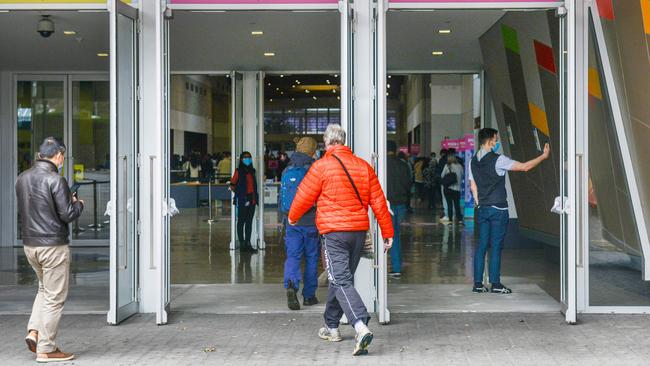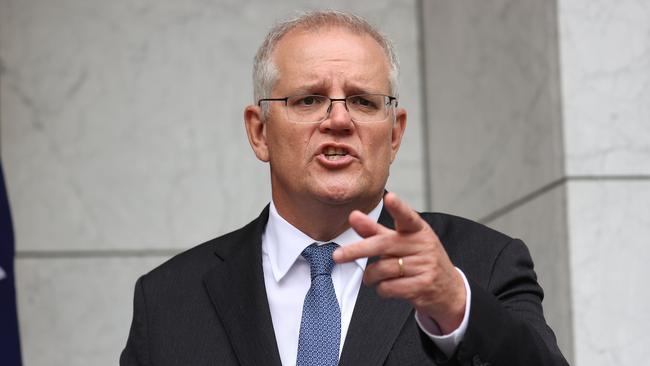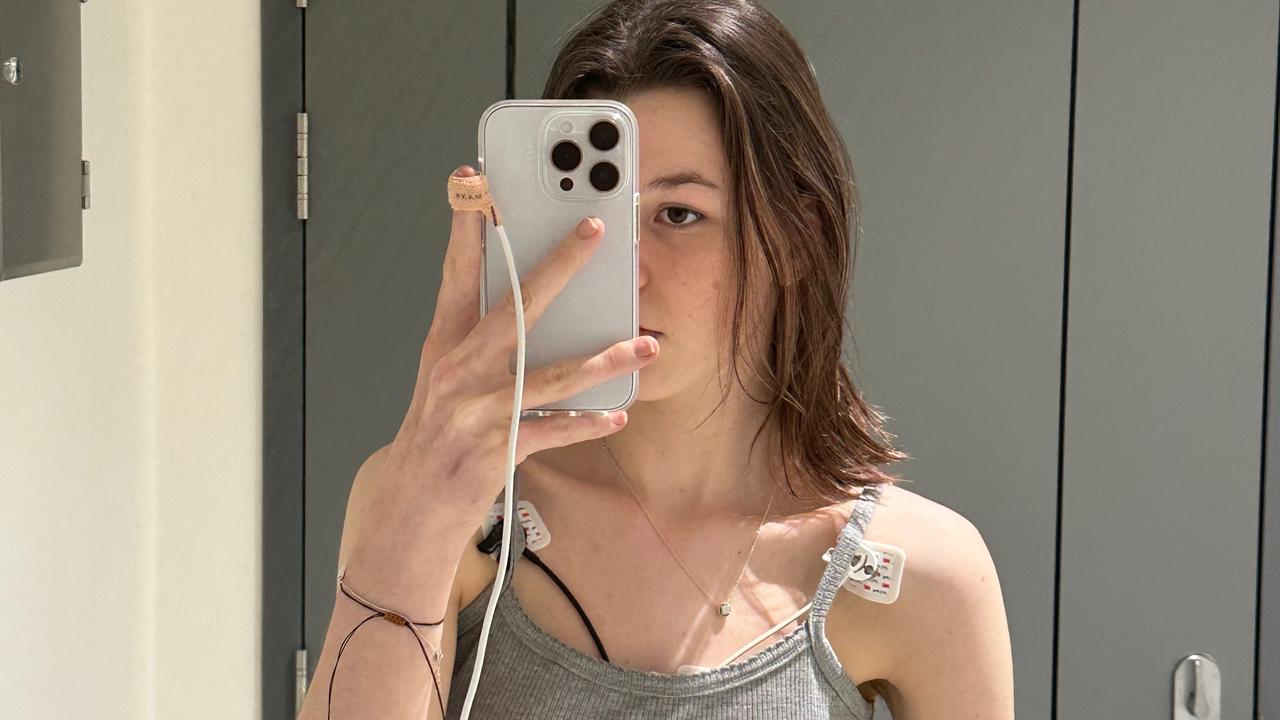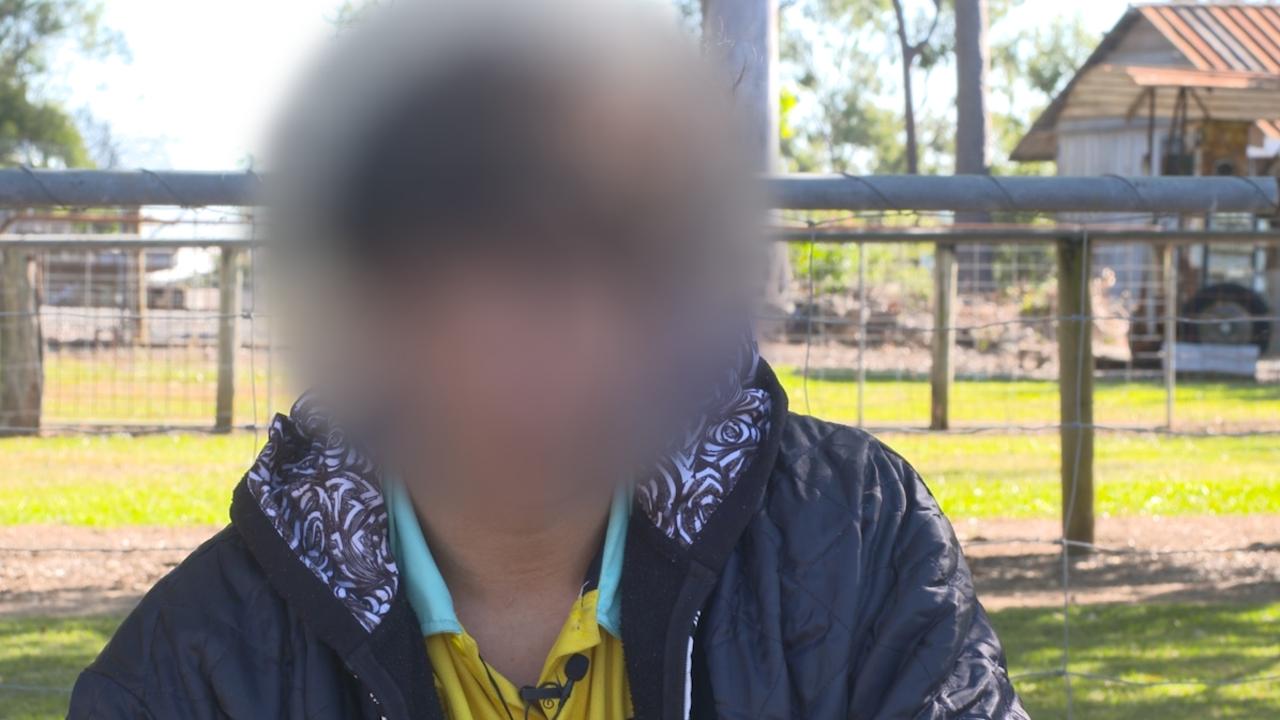350,000 eligible South Aussies fail to get Covid boosters
Almost one million South Australians can now get a Covid booster after the Premier revealed the government’s latest moves to try to speed up the state’s vaccine effort.
Coronavirus
Don't miss out on the headlines from Coronavirus. Followed categories will be added to My News.
More than 350,000 eligible adults have failed to get a Covid-19 booster vaccine as authorities accelerate dose wait times amid hopes South Australia may hit the magic double- jab target Thursday.
In a significant development on Wednesday, Premier Steven Marshall revealed the gap between the second and third vaccination shots will be slashed by four weeks to three months.
The immediate changes, based on updated health advice from the country’s expert immunisation panel, allow 225,000 more patients to become eligible for their third Covid-19 vaccination.
But at least 352,000 people, or 40 per cent, of eligible adults are yet to be triple vaccinated.
Currently, 880,000 South Australians can get a booster.

Police Commissioner Grant Stevens, who will authorise the easing of all bans, said it was “absolutely critical for us to be able to lift restrictions”.
“There are a lot of people who are eligible for the booster who haven’t turned up,” he said.
“The sooner we get big numbers in that area, the sooner we can talk about lifting restrictions. I think we just have to hold the course for the time being; we’re pretty close.”
Latest figures show 89.9 per cent of those aged 12 and above are double jabbed.
Officials hope SA will hit the key 90 per cent double-dose mark as early as today after near-record daily vaccinations.
Announcing the booster policy at the state’s biggest mass vaccination hub at the Adelaide Showground – which expands Moderna doses from today – Mr Marshall said authorities had yet to lock in a critical number for easing restrictions.
Updated modelling will be presented to the Covid Ready Committee Friday. Mr Marshall said the more people got boosted, the sooner “we get back to a more normal life”.
“The supply and the availability of vaccinations … is currently at a record level,” he said. “In fact, we’re seeing demand not keep up with supply. There’s really no excuse whatsoever.”
Boosters are only available to adults older than 18, but national cabinet will consider advice from the emergency medical panel, the Australian Health Protection Principal Committee, to lower it to children aged 16 and 17.
Chief public health officer Professor Nicola Spurrier urged people to book an appointment today.
“We know that the third dose provides a far better level of protection against the Omicron variant,” she said.
“So, reducing the interval required to get this dose will give people the best protection possible even sooner.”
SA Health was forced to revise Wednesday’s Covid-19 death toll down to three – including two men in their 70s and 80s, and a woman in her 70s – after Mr Marshall earlier announced there were six.
The state recorded a rise of 403 new cases to 3482.
The number of patients admitted to hospital rose by nine to 294. ICU patients fell by one to 23 with four ventilated.

National cabinet meets tomorrow to consider overhauling vaccination mandate rules that would pave the way for thousands of South Australian teachers, police officers and taxi drivers to be forced to have a Covid-19 booster jab.
State and territory leaders will discuss, with Prime Minister Scott Morrison, the latest health advice on whether a third dose is required to be fully vaccinated.
Legal directions, authorised by Police Commissioner Grant Stevens, already mandate a booster jab for:
HEALTH care workers;
AGED-CARE staff;
PEOPLE who work in home or community aged care;
DISABILITY workers, and;
FORENSIC science staff.
The Covid ready committee is discussing widening this to other two-jab mandated sectors such as teachers, police officers and transport workers including bus, train, taxi, ride share or chauffeur drivers.
At the press conference on Wednesday, Premier Steven Marshall said that it was increasingly likely that the third shot would become the measure of whether people were fully vaccinated.
Already, he said 60 per cent of people who were eligible have had their third jab, but that would be discussed at national cabinet on Thursday or next week.
Mr Marshall said those people who already have a mandatory requirement for two jabs will probably convert to a mandatory requirement for three jabs – because the third booster gives greater protection against Omicron. He said people who require mandatory doses were those who have to work closely with people.
Latest federal data shows 385,590 booster doses have been administered. More than half of eligible adults have three doses, SA Health says.
Mr Marshall on Tuesday revealed two more Covid-related deaths – men aged in their 80s and 90s.
On Wednesday, Mr Marshall announced there were 3482 new cases of Covid-19 in the state, and three deaths.
There were 294 people in hospital, 23 in ICU and four on a ventilator.
For full details of Wednesday’s new Covid case numbers, go to our rolling update.
Dozens more aged care homes hit
Almost two dozen more SA nursing homes are battling Covid-19 outbreaks as authorities ease return-to-work rules to plug aged-care staff shortages.
SA Health data on Wednesday showed 122 active aged-care sites, which has increased by 20 homes in the past two days.
The contagion in 45 per cent of SA’s 270 nursing homes has infected an extra 164 residents and 189 more staff.
Many operators have banned visitors and locked down hundreds of residents. More than 1500 residents and staff in total are ill.
An aged-care outbreak is defined as at least one infectious resident or two ill workers.
SA Health published new close contact rules on Wednesday night allowing asymptomatic, fully vaccinated and tested workers to leave isolation early to combat “critical workforce shortages”. They must quarantine outside of work.
Visitors are not banned at exposure sites, only in an outbreak, which is over 10 days after the last infection.
The 12-page report, approved by chief public health officer Professor Nicola Spurrier, also details how to treat residents, control infections, use protective equipment and access rapid antigen home tests.
New minutes from a December 7 Transition Committee meeting noted the Commonwealth’s “booster program in Aged-Care was progressing slowly”.





